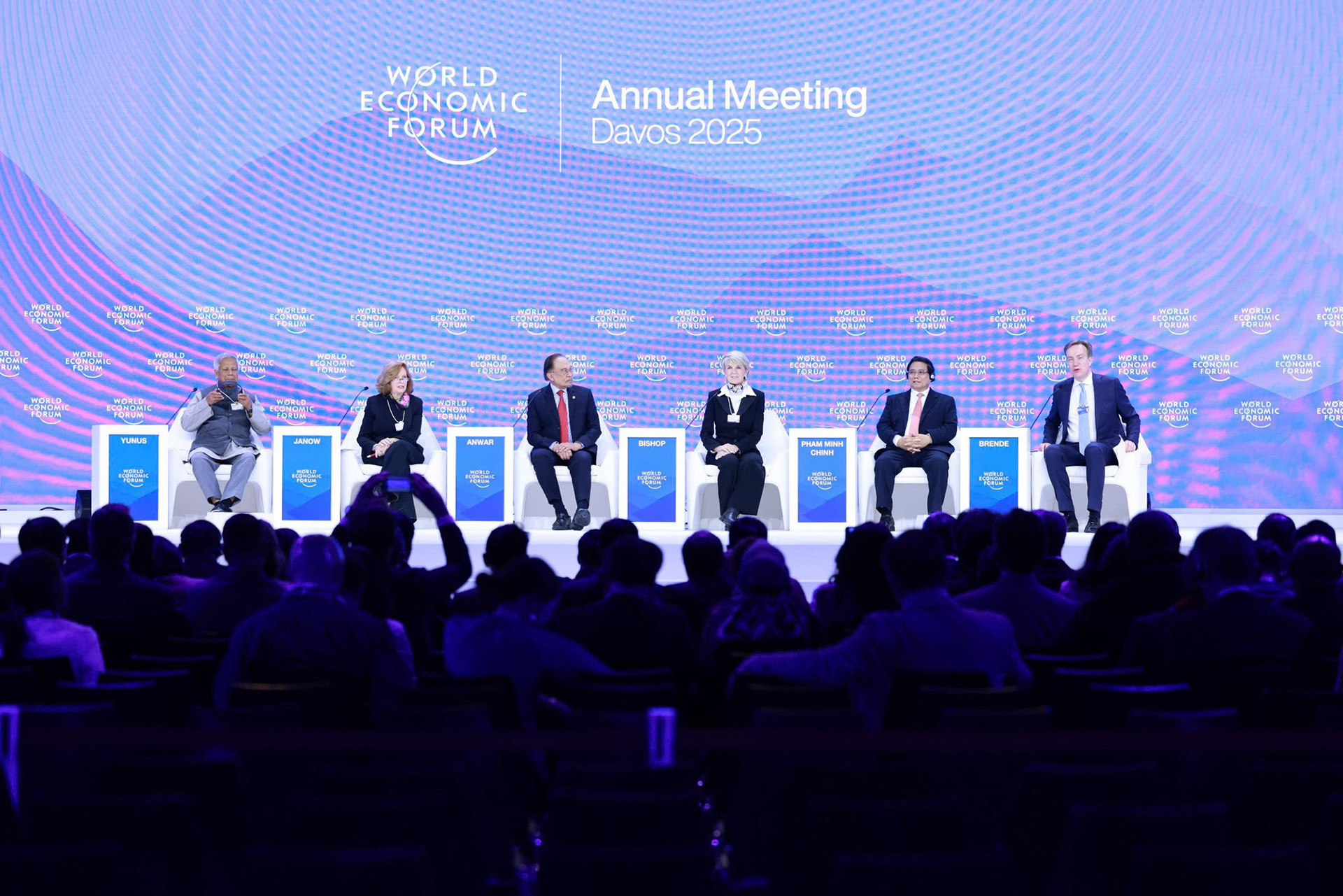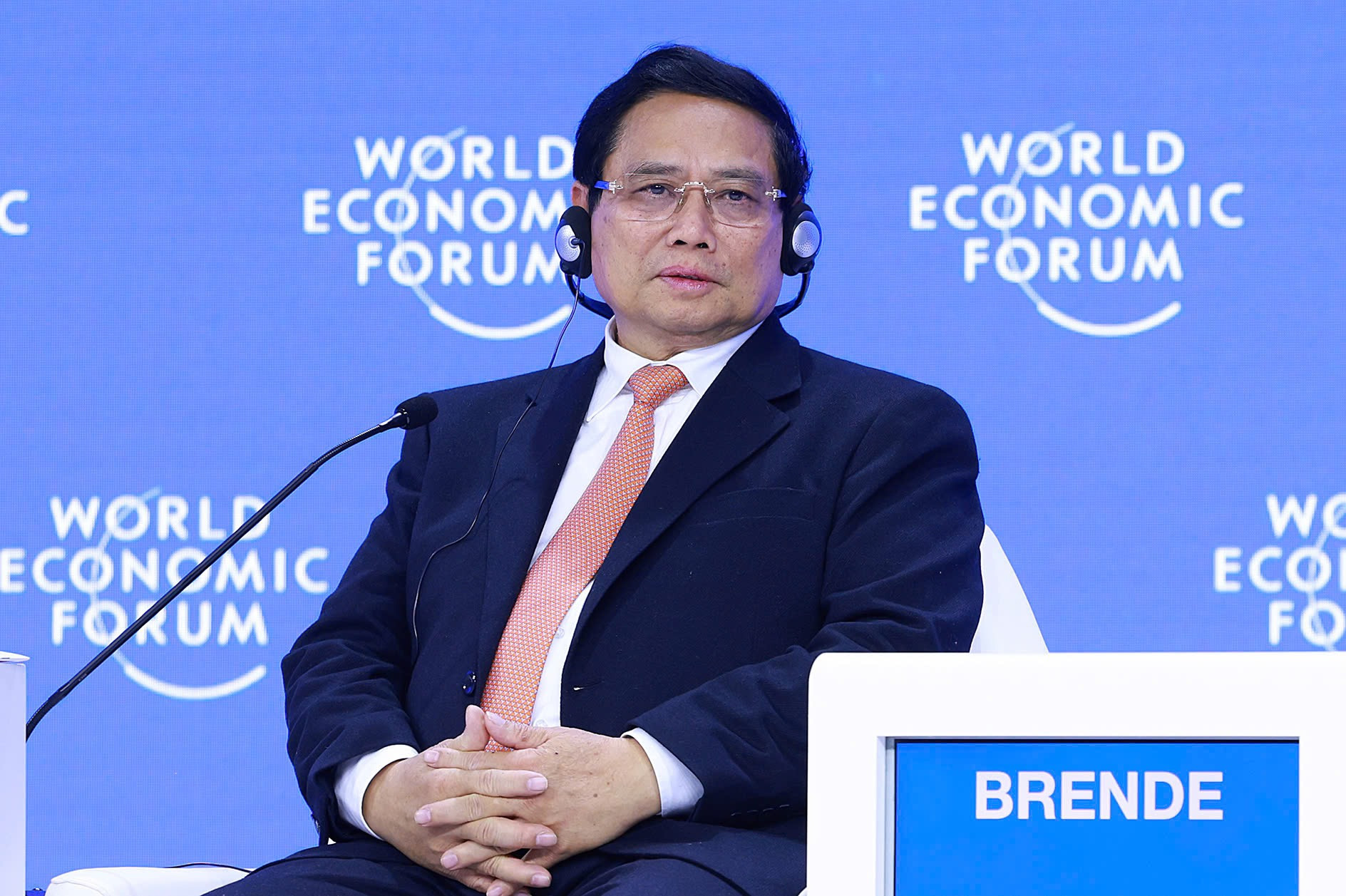On January 22 (local time), Prime Minister Pham Minh Chinh attended and spoke at the discussion session “ASEAN: Connected for Greater Progress” at the World Economic Forum (WEF) Davos 2025 in Switzerland. The session, chaired by WEF President Borge Brende, explored ASEAN’s opportunities and challenges in the era of smart technology.
Joining the discussion were Malaysian Prime Minister Anwar Ibrahim, Chief Advisor of Bangladesh (Interim Prime Minister) Muhammad Yunus, United Nations Special Envoy on Myanmar Julie Bishop, and Mastercard Chair Merit Janow.
ASEAN's strengths and vision


Prime Minister Anwar Ibrahim outlined three key priorities for ASEAN in 2025: ensuring energy infrastructure for the region, particularly green and alternative energy; leveraging artificial intelligence to enhance connectivity within ASEAN; and addressing climate change.
Speakers recognized ASEAN’s dynamic economy as one of the world’s growth engines, emphasizing its potential to lead the transition into the smart era. ASEAN’s unique advantage lies in its entrepreneurial and creative youth - often referred to as the "digital generation" - who are expected to drive future regional growth.
Prime Minister Pham Minh Chinh, representing one of ASEAN’s fastest-growing economies, highlighted the immense challenges posed by the "smart era" but described it as an inevitable path forward.
He urged ASEAN to embrace the smart era with ambition and innovation, using science, technology, and digital transformation as key drivers to create breakthroughs in growth.
Six pillars for ASEAN success


Sharing his vision for ASEAN’s future, Prime Minister Chinh outlined six essential pillars for ASEAN’s success in the smart era:
Political and security stability: The region must ensure peace and avoid conflict or war.
Economic development: Growth must be both rapid and sustainable.
Cultural harmony: ASEAN must promote unity in diversity while preserving its collective identity and the uniqueness of each member state.
Environmental sustainability: Resources must be used responsibly to protect the environment for future generations.
Social progress: The region must ensure social equity, inclusivity, and leave no one behind.
Global cooperation: ASEAN must enhance its integration with the global community to share knowledge and achieve common development goals.
Vietnam’s strategic priorities

The Prime Minister emphasized that Vietnam cannot afford to grow at an average pace and must prioritize science, technology, innovation, and digital transformation.
Vietnam’s three strategic priorities include:
Institutional frameworks: Vietnam has enacted Resolution 57 to promote breakthroughs in science, technology, and digital transformation, alongside legal reforms to foster a national innovation ecosystem.
Infrastructure: The country is focusing on developing digital infrastructure, particularly data systems, as a core element of growth.
Human resources: Vietnam aims to prepare a high-quality workforce, with a focus on emerging industries like the green economy, digital economy, and knowledge-based economy. Special attention will be paid to areas where Vietnam excels, such as mathematics and logical reasoning.
Call for regional and global cooperation
The Prime Minister called for stronger collaboration within ASEAN and between ASEAN and the global community to harness collective intelligence for shared development goals.
On Myanmar, he expressed confidence that ASEAN’s solidarity and unity would contribute to restoring peace, stability, and happiness for the people of Myanmar.
Prime Minister Chinh’s insights and vision for ASEAN’s future were met with broad support from the session’s speakers and participants.
This marked Prime Minister Chinh’s final activity during his working trip to Switzerland, following official visits to Poland and the Czech Republic, participation in the 55th annual WEF conference, and bilateral engagements in Switzerland.
Tran Thuong